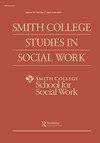在新常态下蓬勃发展:COVID-19如何影响替代学习者及其家庭以及实施有效、创造性的治疗干预措施
IF 0.9
Q2 SOCIAL WORK
引用次数: 14
摘要
COVID就地庇护指令增加了另类学习儿童(ADHD, ASD和LD)家庭的压力。这些孩子已经在努力管理情绪,开始和完成家庭和学校任务并维持社会联系,这些孩子失去了关键的面对面学术,治疗和同伴支持系统。与此同时,由于父母没有接受过特殊教育的培训,而且经常要处理自己的注意力和学习上的挑战,他们在没有接受过必要培训的情况下辅导孩子,不得不处理工作、经济和住房方面的责任,家里的紧张局势也在加剧。焦虑的增加、反应性的提高和持续的失望会使家庭关系变得更加复杂。干预措施,以帮助孩子的家庭神经多样性,另类学习者是最有效的,当他们依靠5 C的方法成功的ADHD教育。在有意义的激励机制的基础上,共同努力寻求有效的解决办法,减少家庭冲突,提高孩子的参与度,促进亲子合作。当治疗师应用这个模型并帮助家庭使用它时,他们加强了情绪调节,并将家庭叙述从问题饱和的思维转变为恢复和繁荣。本文章由计算机程序翻译,如有差异,请以英文原文为准。
Thriving in the New Normal: How COVID-19 has Affected Alternative Learners and Their Families and Implementing Effective, Creative Therapeutic Interventions
ABSTRACT COVID shelter-in-place directives have increased stress families of kids who are alternative learners–those with ADHD, ASD and LD. Already struggling to manage emotions, to begin and finish home and school tasks and maintain social connections, these kids have lost critical in-person academic, therapeutic and peer support systems. Meanwhile, tension at home has increased as parents, untrained in special education and often dealing with their own attention and learning challenges, have to deal with work, financial and housing responsibilities while tutoring their children without necessary training. Increased anxiety, higher levels of reactivity and persistent disappointment further complicate family relationships. Interventions to help families of kids who are neurodiverse, alternative learners are most effective when they rely on the 5 C’s method of successful ADHD parenting. Working together for effective solutions based on meaningful incentives reduces family conflict, improves kids’ participation and fosters parent-child cooperation. When therapists apply this model and assist families in using it, they strengthen emotional attunement and shift the family narrative away from problem-saturated thinking toward resilience and thriving.
求助全文
通过发布文献求助,成功后即可免费获取论文全文。
去求助
来源期刊

SMITH COLLEGE STUDIES IN SOCIAL WORK
SOCIAL WORK-
CiteScore
1.50
自引率
10.00%
发文量
10
期刊介绍:
Smith College Studies in Social Work focuses on the vital issues facing practitioners today, featuring only those articles that advance theoretical understanding of psychological and social functioning, present clinically relevant research findings, and promote excellence in clinical practice. This refereed journal addresses issues of mental health, therapeutic process, trauma and recovery, psychopathology, racial and cultural diversity, culturally responsive clinical practice, intersubjectivity, the influence of postmodern theory on clinical practice, community based practice, and clinical services for specific populations of psychologically and socially vulnerable clients.
 求助内容:
求助内容: 应助结果提醒方式:
应助结果提醒方式:


